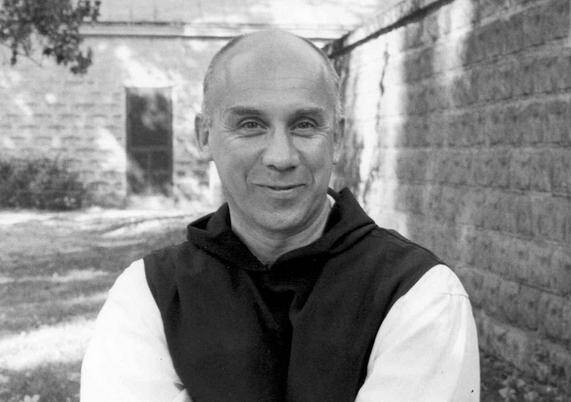Today, as the world looks to South Africa to remember the life and legacy of Nelson Mandela, we also call to mind the life and legacy of another 20th-century figure who shared many of the same commitments that the Nobel Laureate, anti-apartheid activist and former president of South Africa also held: A commitment to civil rights rooted in racial and ethnic equality, a commitment to peacemaking, a commitment to justice.
Today is the 45th anniversary of the death of Thomas Merton, the Trappist monk, spiritual writer and social activist. It seems fitting to remember these two men today and to look to both for inspiration and guidance as we strive to follow in their footprints.
Merton was only 53 years old at the time of his sudden and unexpected death. In The Seven Mountains of Thomas Merton, Michael Mott writes: “He had died sometime before 3 p.m. Bangkok time. A telegram was sent that night to [the Abbey of] Gethsemani. Crossing the International Date Line, it arrived some fourteen hours after his death, at 10 a.m. on December 10, at the monastery. The tenth of December, 1968, was, to the day, the twenty-seventh anniversary of Thomas Merton's arrival at the Monastery of Our Lady of Gethsemani.”
On the morning of the day that Thomas Merton died in Bangkok, he delivered the talk “Marxism and Monastic Perspectives.” This was the last thing he said publicly that day: “I will conclude on that note. I believe the plan is to have all the questions for this morning’s lectures this evening at the panel. So I will disappear.” And disappear he did. We never know when such throwaway phrases will come to bear a retrospectively clairvoyant status.
We remember a Trappist monk, an incredibly talented writer, a dedicated proponent of peace and nonviolence, a leader in interreligious dialogue, a committed fighter for social justice, a prophet, a brother, a friend, a companion, and someone who continues to influence the world for better. While not yet canonized, he is—as are all the baptized—a member of the communion of saints. May he intercede for us as his work and life continue to inspire others for years to come.
Thomas Merton, ora pro nobis!








